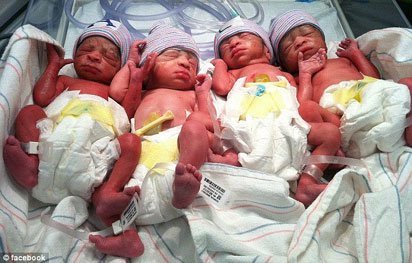IVF: Nigerian youths sell gametes for survival

Guardian Nigeria
December 07 2023

To survive the harsh economy, Nigerian youths have resorted to selling their male and female gametes (sperms and eggs) under an advanced medical procedure known as In Vitro Fertilisation (IVF).
To survive the harsh economy, Nigerian youths have resorted to selling their male and female gametes (sperms and eggs) under an advanced medical procedure known as In Vitro Fertilisation (IVF).
IVF is a system used by some medical facilities to assist infertile couples to have children.
The Guardian investigation showed that students of higher institutions formed the largest percentage of the donors of their reproductive cells, and received between N100,000 and N250,000 per donation.
The University of Ilorin Teaching Hospital (UITH), Kwara State, stands out among few hospitals providing the procedures. There are other two notable ones at Tanke Area, near Judges Quarters and the other at Adewole Estate.
A medical doctor in one of the facilities, however, said not in all cases would they require donations from third parties to boost the fertility of their patients.
While dispelling the rumour of such donations, a clinician with UITH, under condition of anonymity, simply defined the process as the joining of a woman’s egg and a man’s sperm in a laboratory dish.
“In vitro means outside the body. Fertilisation means the sperm has attached to and entered the egg,” he explained
Technical Partner with MEDCLEV Multi Specialists Hospital, Tanke Ilorin, Prof Lukman Omokanye, decried the high rates of infertility in and outside Nigeria.
“But not all these cases would require IVF to resolve. So, I don’t know anything about donors of sperms or eggs. But we can assure such patients suffering infertility that, medically, there is hope for them,” he added.
Some students, who spoke with The Guardian on the issue in Ilorin, said the development boosted their financial capabilities because, persons of their age bracket are seen as “hot cakes” for the donations due to their apparent age advantages and huge chances of fertility above older persons.
A male student in one of the higher institutions in the town, under condition of anonymity, said: “They have our phone numbers and there is a contact person, who will call us each time there is a need.
“We are not paid through the same method that other friends of the hospital are paid. This is so that the representative of the payer would not know what a particular payee is being remunerated for. The entire thing is shrouded in secrecy. They have a way of stimulating us to harvest the sperm.”
It is not, however, certain whether or not there could be a repercussion of “too much donation” for such commercial donors in future.





